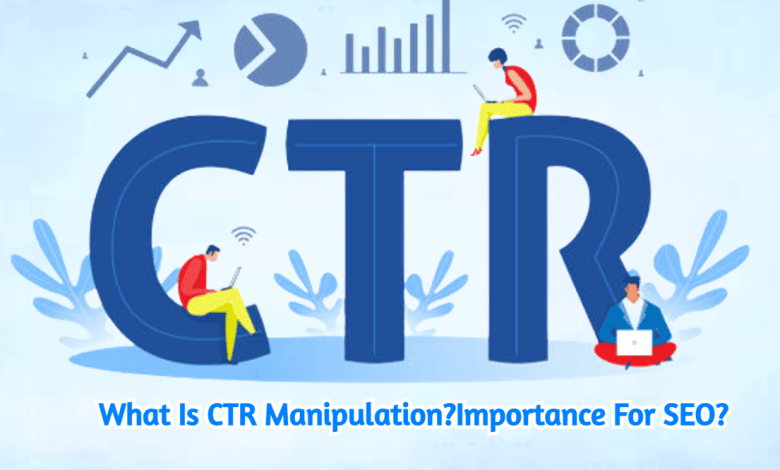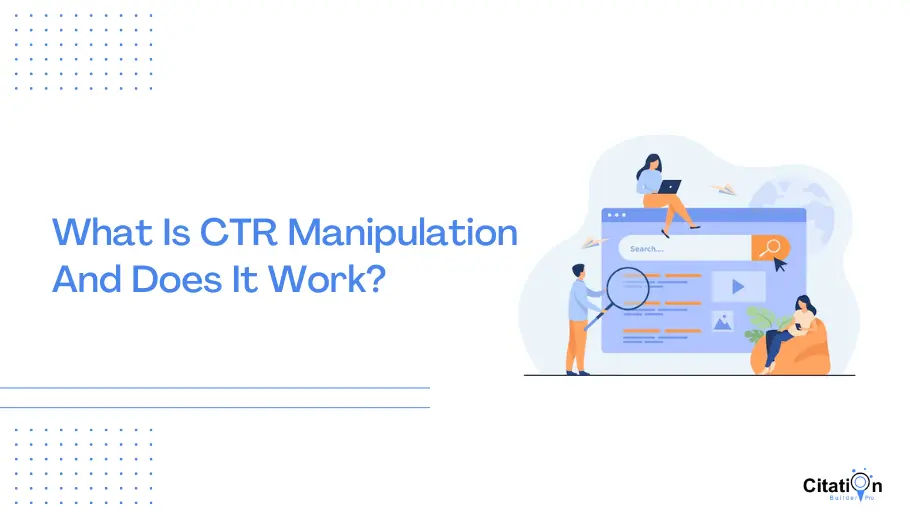CTR Manipulation Techniques: Proven Approaches for Greater Involvement
CTR Manipulation Techniques: Proven Approaches for Greater Involvement
Blog Article
Discovering the Connection In Between CTR Control Solutions and User Habits
In the realm of electronic advertising and marketing, the impact of click-through price (CTR) manipulation solutions on user actions continues to be a complex and interesting subject. As on the internet systems increasingly count on CTR metrics to gauge the success of content, items, and solutions, comprehending how these manipulated rates impact individual interaction and decision-making processes is paramount. The interplay in between CTR control and individual habits elevates inquiries about authenticity, dependability, and the ethical ramifications of such techniques. By exploring the complex relationship in between CTR adjustment services and customer habits, fascinating understandings emerge that may improve our understanding of electronic marketing approaches and their effects on customers.
Impact of CTR Control on Behavior
Analyzing the impact of Click-Through Rate (CTR) control on customer actions reveals critical insights into the characteristics of online interaction. CTR adjustment involves artificially inflating the variety of clicks on a specific link or advertisement to deceive customers and online search engine. This practice can result in a distorted understanding of a page's appeal or relevance, inevitably affecting user actions.

Additionally, CTR control can skew the data used by formulas to personalize user experiences. This can cause users being offered content that does not align with their choices or rate of interests, ultimately causing a decrease in customer contentment and engagement. Recognizing the effect of CTR control on user habits is necessary for preserving openness and rely on online interactions.
Customer Engagement With Manipulated CTR
User engagement with manipulated CTR information commonly results in skewed understandings of on-line content popularity and relevance. When users engage with content based upon synthetically filled with air Click-Through Rates (CTR), they might believe that specific information, items, or services are much more preferred or credible than they really are. This can lead to users choosing based on deceptive data, causing potentially undesirable outcomes.
Engagement metrics like sort, shares, remarks, and time invested on a web page are often affected by CTR adjustment. Customers may be much more likely to involve with content that appears to have higher interaction prices, additionally continuing the cycle of manipulated understandings. Therefore, web content creators and advertisers might prioritize generating material that produces high CTR instead of concentrating on producing genuinely useful and pertinent product.

Psychological Impacts of CTR Adjustment

In addition, the emotional impacts of CTR manipulation can additionally materialize in modified decision-making processes. Users might be more likely to click material entirely based upon its regarded appeal, as opposed to its real official statement worth or significance to their requirements. This behavioral change can cause a superficial engagement with on-line material, where users may neglect high-quality but much less prominent offerings in favor of those with artificially enhanced my review here CTRs.
In essence, the emotional ramifications of CTR manipulation highlight the relevance of keeping openness and credibility in online interactions to promote authentic user involvement and trust fund.
Ethical Factors To Consider in CTR Control
Considering the moral effects of adjusting click-through prices (CTR) in on the internet platforms is essential for maintaining honesty and trust within the electronic ecosystem. CTR manipulation increases problems regarding deceiving customers, distorting data analytics, and jeopardizing the integrity of on the internet web content. One significant ethical consideration is the potential influence on customer autonomy and decision-making. By synthetically inflating CTR, customers may be misinformed right into clicking on links or ads they would not have actually chosen or else, resulting in a disingenuous online experience. CTR control can skew the performance metrics that companies count on to make calculated decisions, eventually influencing market competitors and customer trust fund.
One more ethical aspect to ponder is the justness of manipulating CTR to acquire an unreasonable benefit over competitors. Involving in such methods not only breaches principles of reasonable play but additionally threatens the trust fund that customers put in on the internet platforms. It is vital for organizations and digital marketers to promote honest requirements in their practices to make certain transparency, trustworthiness, and long-lasting sustainability in the on the internet atmosphere.
Effects for Digital Advertising
CTR control can lead to manipulated information analytics, misleading marketing professionals right into believing that their campaigns are carrying out better than they in fact are. When customers recognize that CTRs have been controlled, it can erode trust in the brand, leading to long-term unfavorable effects for customer commitment and brand name track record.
Furthermore, using CTR control services can develop an unfair affordable landscape, where business that take part in such practices acquire an artificial advantage over those that stick to honest advertising requirements. This can stifle innovation and creativity in digital marketing, check as success becomes more regarding control techniques than providing genuine value to customers. Inevitably, the ramifications of CTR adjustment for digital marketing prolong beyond temporary gains, influencing the overall sustainability and reliability of advertising and marketing efforts in the electronic realm.
Conclusion
To conclude, the relationship between CTR manipulation services and user behavior is complicated and complex. The impact of CTR control on actions, user involvement with controlled CTR, psychological effects, moral factors to consider, and implications for digital advertising all contribute fit this partnership. Recognizing these dynamics is vital for marketing experts and researchers alike in order to navigate the honest effects and optimize the efficiency of their electronic advertising strategies.
Report this page